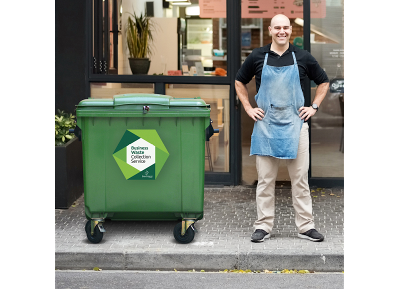What Happens to Commercial Food Waste in Breckland?

Did you know your business food waste in Breckland doesn't go to landfill? Instead, it's turned into energy through a clever process called anaerobic digestion.
This happens after your commercial food waste collection in places like Watton, Attleborough, Dereham, Swaffham, and Thetford. Whether your business is big or small, your food scraps can help make something useful, like electricity and fertiliser.
Turning Business Food Waste into Something Good
When we collect your business food waste in Norfolk, it goes to a special place called an anaerobic digestion (AD) plant. Here's what happens:
- Food Waste Is Collected: Your food waste is picked up from your business (like shops, cafés, and offices) across Breckland, including Watton, Swaffham, Attleborough, Dereham, and Thetford.
- It's Cleaned and Sorted: At the plant, any rubbish that's not food - is taken out. Only food waste goes in the next step.
- It Breaks Down in a Big Tank: The food is put into a big tank with no oxygen. Tiny bugs (called microbes) break it all down. The tank is kept warm to help them do their job faster.
- It Makes Gas - Biogas!: As the food breaks down, it makes a gas called biogas. This gas is full of methane, which is great for making electricity and heat.
- Leftovers Become Fertiliser: What's left is a thick, gloopy material called digestate. It's packed with nutrients and is used by farmers as fertiliser to grow new crops.
Why This Is Good for Breckland and Norfolk
- Less landfill - When food waste goes to landfill, it makes harmful gases like methane. Anaerobic digestion stops this.
- Clean energy - We get energy without burning fossil fuels. This helps the planet.
- Natural fertiliser - Farmers can grow more food using digestate, so nothing goes to waste.
- Supports Simpler Recycling - This process is part of the new Simpler Recycling rules in Breckland and across Norfolk. Businesses now have better ways to separate food waste and help the environment.
Wha Is Biogas Used For?
- Electricity and Heating: Biogas is used to make both electricity and heat at the same time - that's called combined heat and power. It's a smart way to use energy.
- Fuel for Buses and Vans:Some buses now run on biogas instead of petrol or diesel. That means cleaner air.
- Helping Homes Around the World: In some places, families use small biogas systems at home to cook food and heat water.
Anaerobic Digestion: A Smart Way to Deal with Waste
By using anaerobic digestion in Norfolk, we:
- Stop food waste from polluting the air
- Make green, renewable energy
- Help farmers grow more food
- Power over 1 million homes in the UK
- Support the Simpler Recycling rules across Watton, Attleborough, Dereham, Swaffham, Thetford, and all of Breckland
If your business isn't separating food waste yet, it's time to start. You'll be helping the environment, saving money on general waste, and following the new Simpler recycling: workplace recycling in England (opens new window) guidance.
Is Your Business Ready for Simpler Recycling? Key Steps Before March 2025




